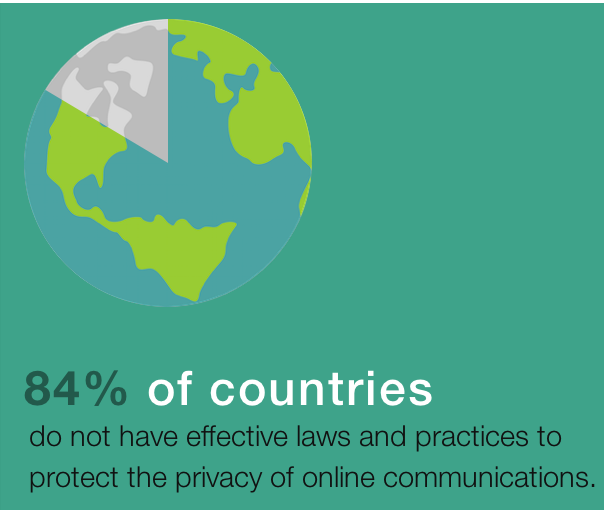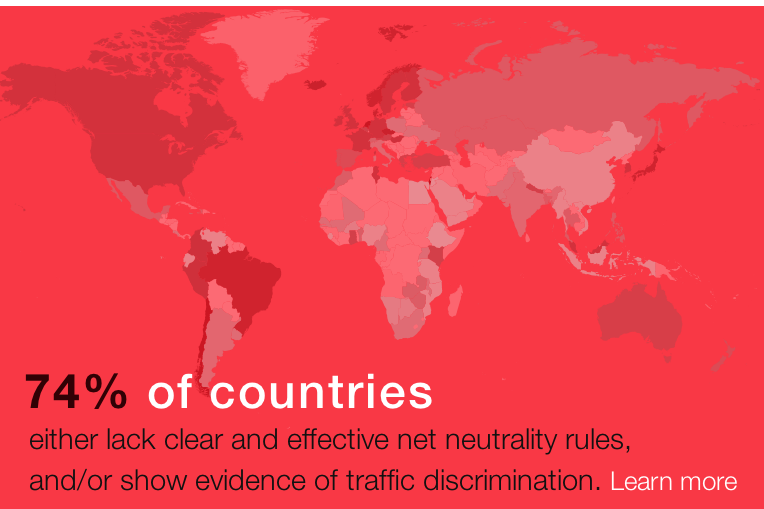The World Wide Web Foundation, which was founded by Tim Berners-Lee, issued its Web Index Report for 2014. The Report finds a large digital divide, with over 4.4 billion people--primarily from poor and developing countries--with no Internet access. Even in developed countries, there is a digital divide with lower income people having less access to the Internet. In terms of mass surveillance, 84% of the 86 countries analyzed lack privacy laws to protect people from government surveillance. Likewise, 84% of the countries analyzed lack sufficient protections for net neutrality. Just as disturbing, 74% of the countries analyzed "are not doing enough to stop online violence against women," according to the Report.
Here are some of the key findings from the Report:
- At least 1.8 billion Internet users have little or no right to privacy or freedom of expression online thanks to pervasive surveillance or censorship.
- Legal safeguards against government snooping on our communications were eroded or bypassed in many countries in the past year, with 84% of Web Index countries failing our test for basic privacy safeguards, up from 63% in the 2013 Index.
- Almost 40% of countries blocked politically or socially sensitive Web content to a moderate or extreme degree in the past year, up from 32% in 2013.
- In 74% of Web Index countries, lack of net neutrality means that ability to pay may limit the content and services users can access.
- One in five female Internet users live in countries where harassment and abuse of women online is extremely unlikely to be punished.

